Analysis of Healthcare Administration Barriers at University
VerifiedAdded on 2020/05/16
|5
|513
|104
Report
AI Summary
This report delves into the critical barriers within healthcare administration, focusing on the impact of leadership skills and decision-making processes. It highlights how the absence of effective leadership can lead to issues such as unequal distribution of care and support services, directly affecting patient outcomes. The report examines the relevance of these administrative challenges, drawing parallels with business management principles, particularly the importance of strong leadership in fostering responsibility and quality service delivery. The study emphasizes the implications of poor leadership and decision-making on patient care, the potential for organizational disputes, and the need for informed decision-making practices to overcome these challenges. It references relevant literature to support its findings and provides a comprehensive overview of the current challenges in healthcare administration.
1 out of 5
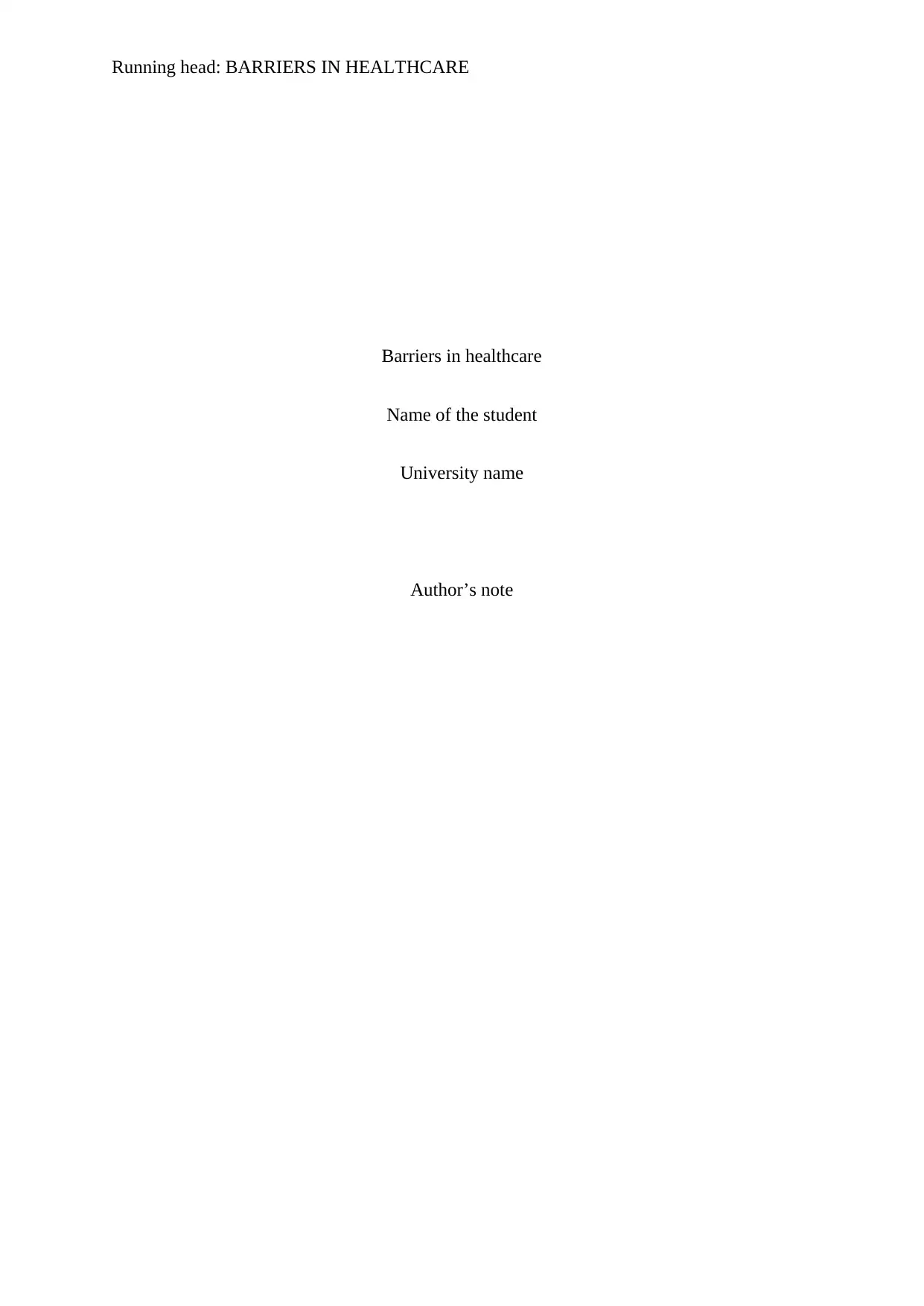
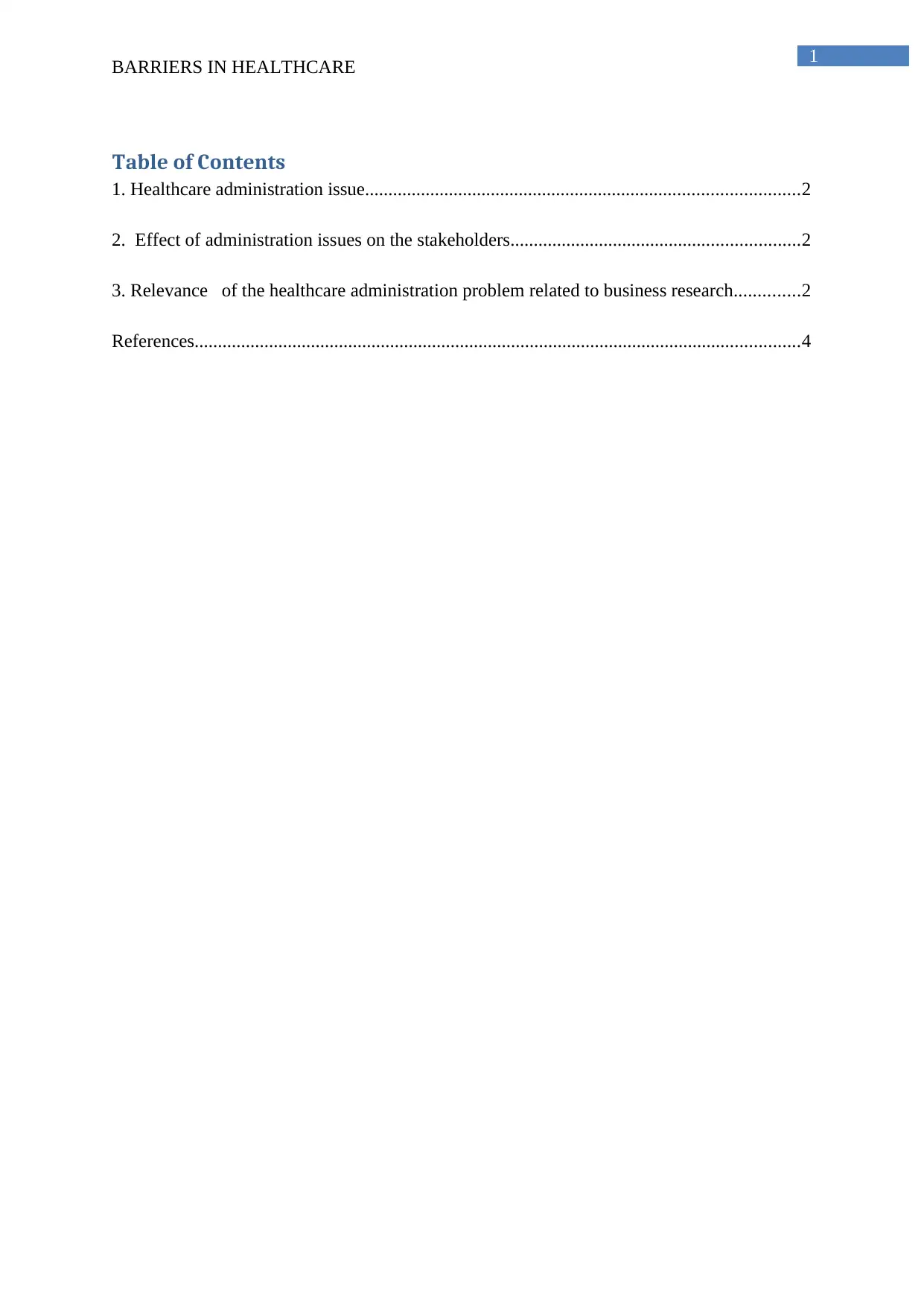
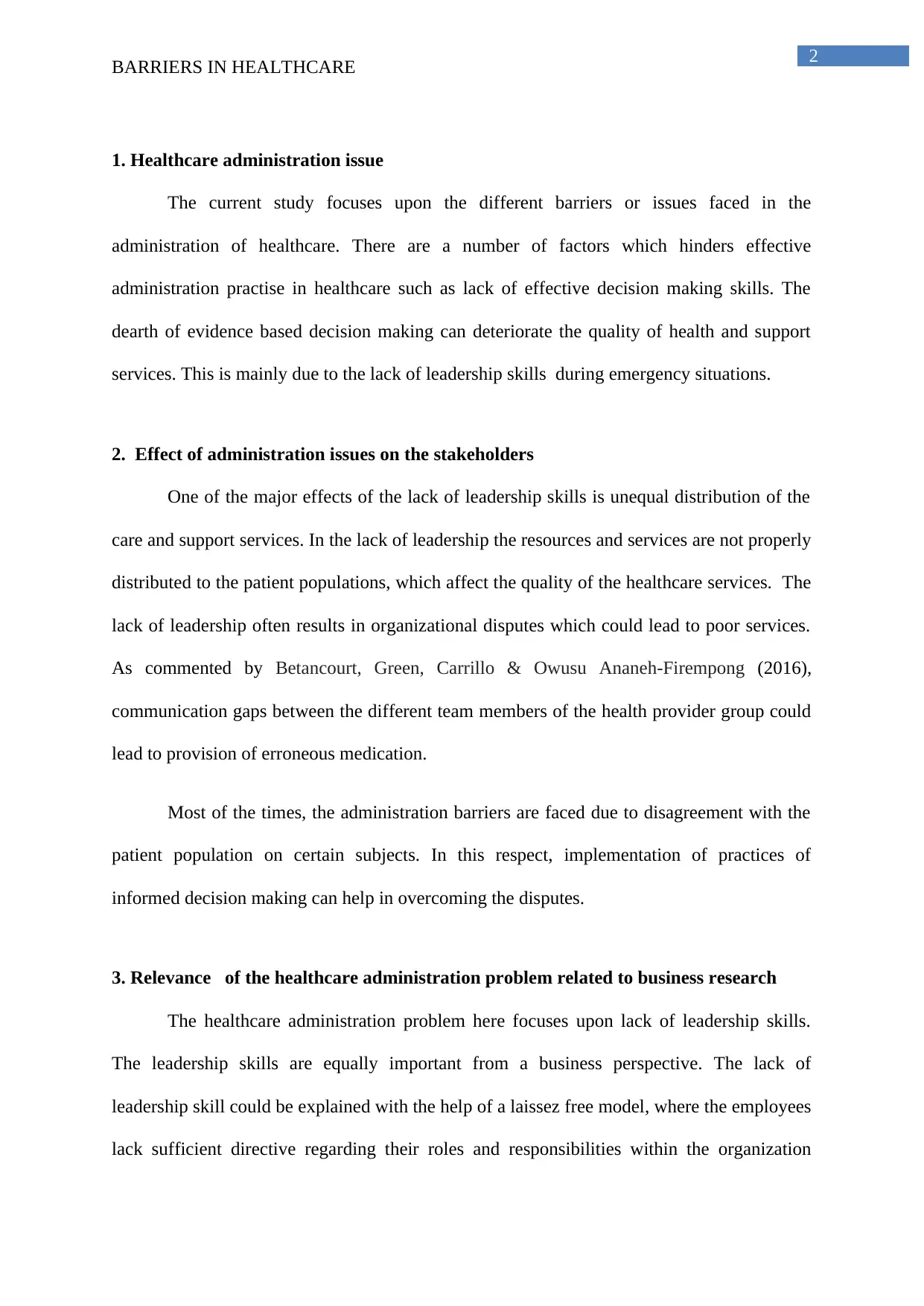

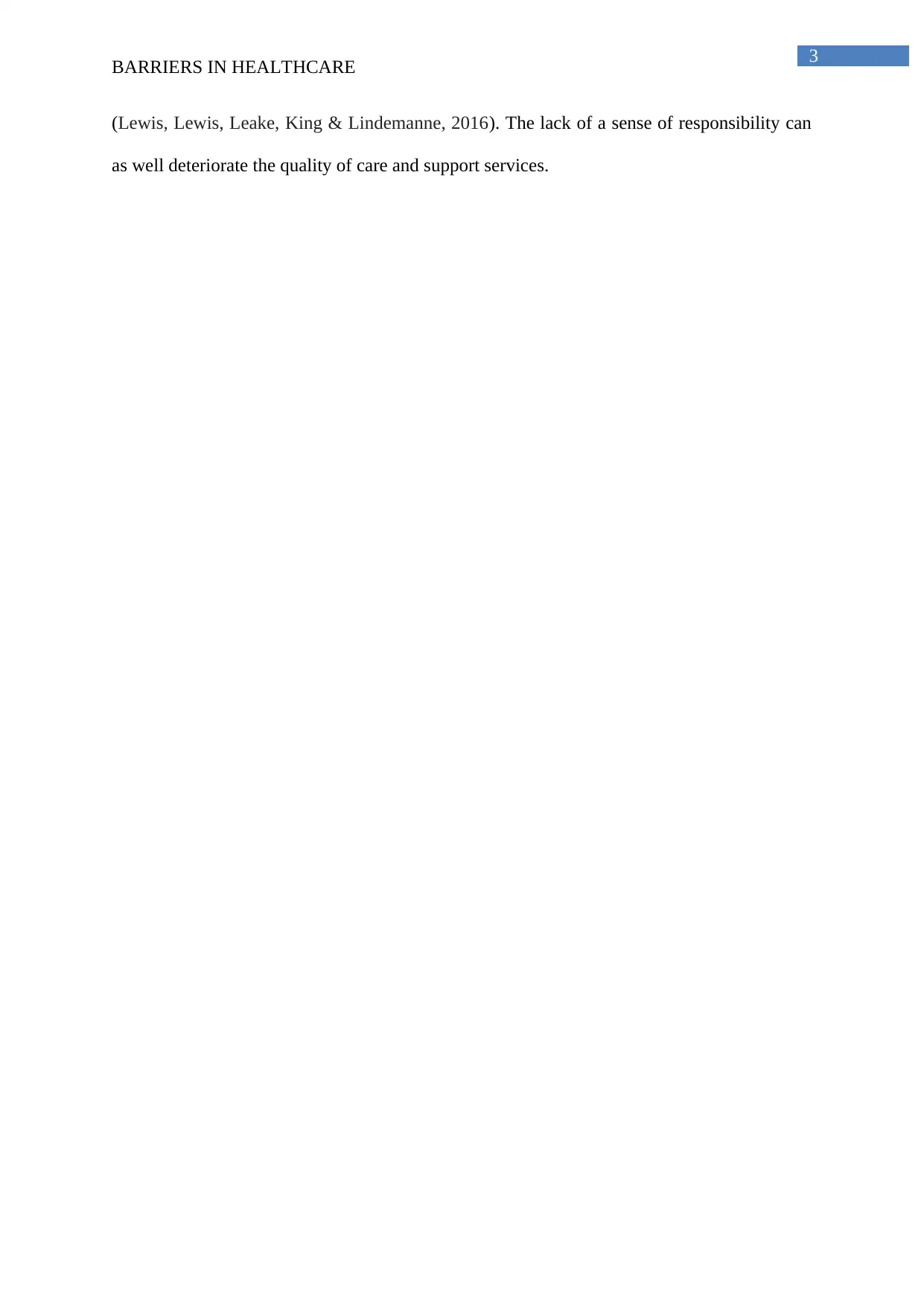
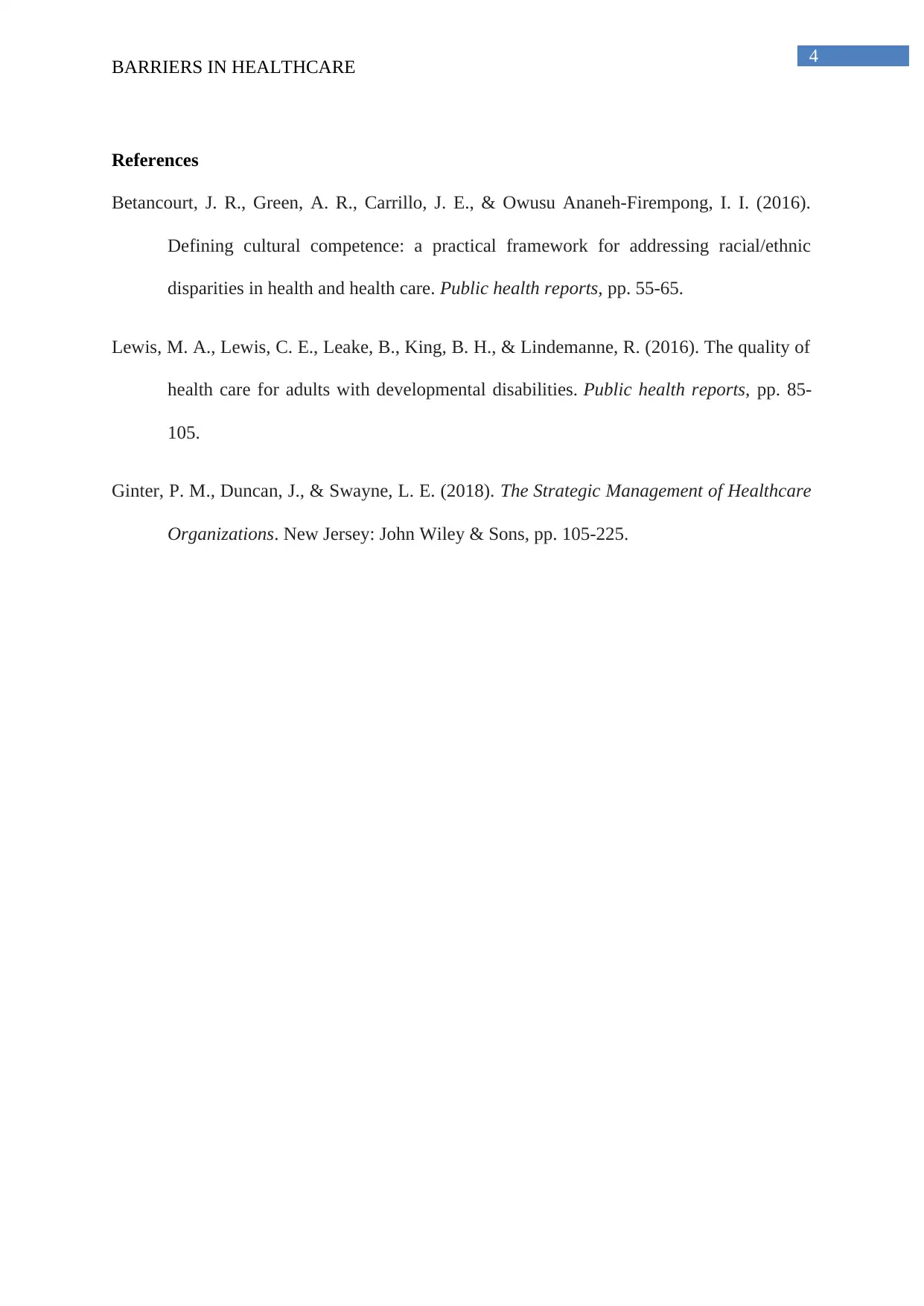




![[object Object]](/_next/static/media/star-bottom.7253800d.svg)